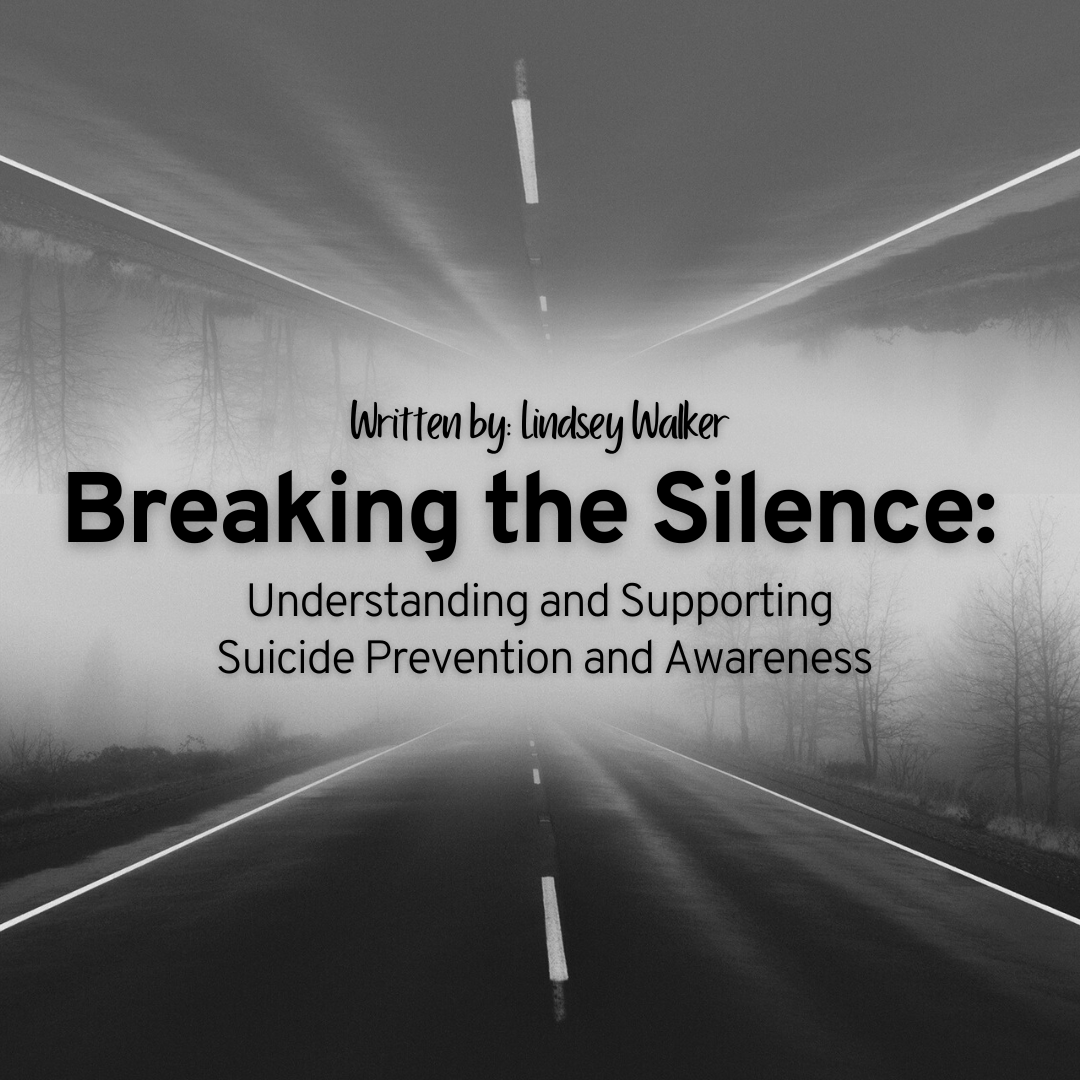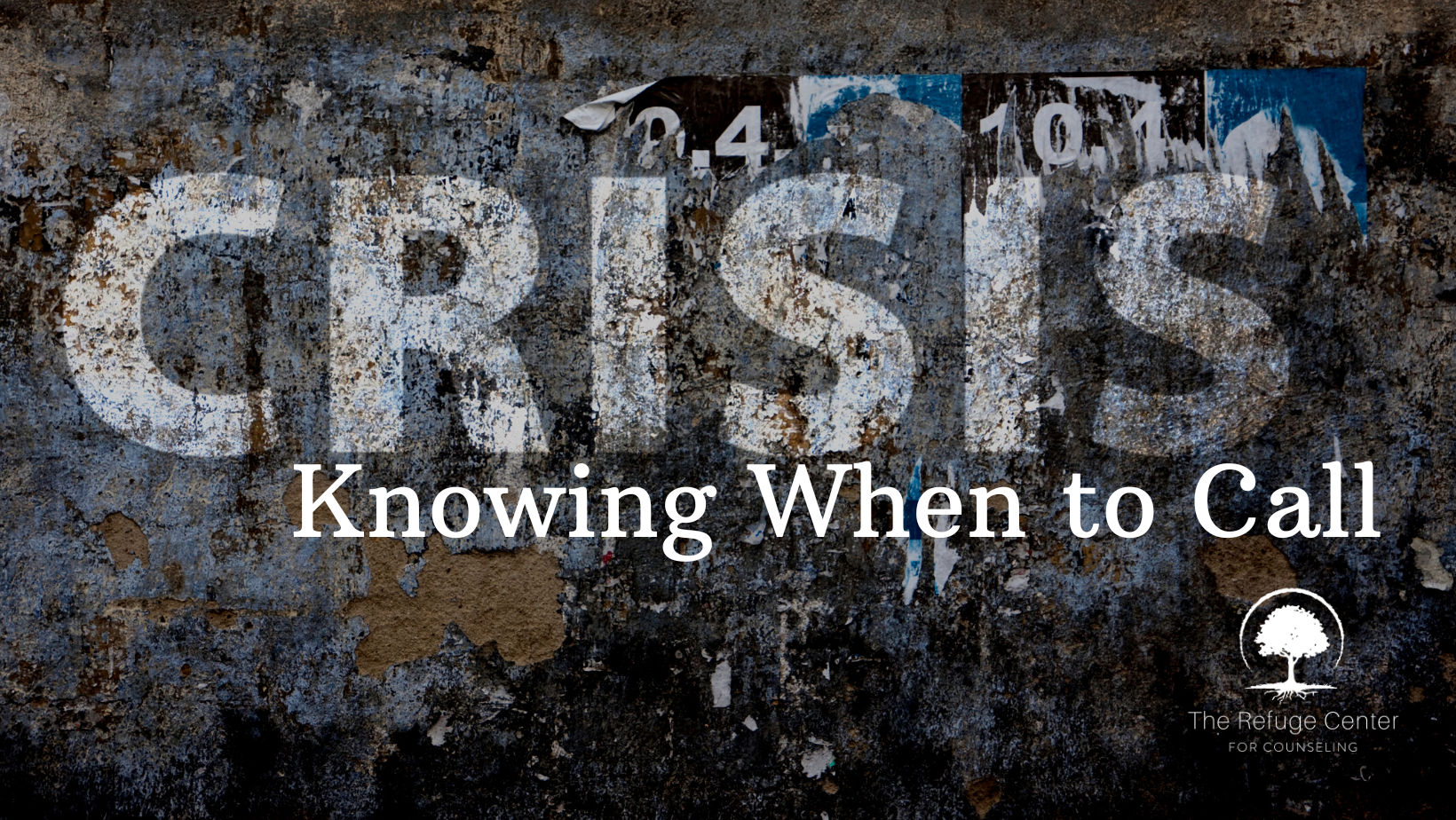Suicide is a word that many of us don’t want to say out loud, much less read about or say out loud. In certain circles, suicide can be seen as the “easy way out.” We’ve judged it. We’ve judged the people who’ve chosen to do it. And we have judged the people closest to the person who took his own life.
Suicide is hard. Suicide is awful and gutwrenchingly painful. Many of us don’t understand it because we don’t know what it feels like to be in the headspace of a person who genuinely believes the pain of living just needs to end.
But we need to talk about it. We need to learn, we need to grow, and we need to have more compassion and understanding for our brothers, sisters, neighbors, parents, and children who are contemplating suicide.
September is Suicide Prevention and Awareness Month—a month devoted to raising awareness about suicide and gaining an understanding of how to talk to those we love about it. Suicide seems daunting, but there is so much beauty found in having authentic conversations with people in vulnerable places. It’s not that people who experience suicidal thoughts actually want their life to end, but rather, for the all-consuming pain they feel to just be over.
Over the years, the number of people seeking therapy has seemed to grow, yet many still feel that asking for help is a sign of weakness, that it’s unacceptable, and that their problems really aren’t that big a deal. As friends and community members, we have an important role to pay attention when our friends are hurting.
Look for these warning signs to help you recognize when someone around you is experiencing suicidal thoughts:
- Feeling hopeless, extremely sad, and experiencing unbearable emotional or physical pain
- Talking about wanting to die and being a burden to others
- Withdrawing from friends, eating or sleeping more or less, displaying extreme mood swings
As we grapple with how to support those in crisis, it can feel difficult to know how to address those warning signs we see in others. Below are 5 tips to keep in mind while having conversations with those in crisis, as outlined by The National Action Alliance for Suicide Prevention and the 988 Suicide & Crisis Lifeline:
- Ask. The idea that asking someone directly about suicide will increase their likelihood of following through with it is a myth. In fact, asking direct questions may reduce suicidal ideation. Here is a way you can ask directly: “I’m worried because I noticed (insert symptoms you have noticed). Have you had thoughts about suicide?”
- Help Keep Them Safe. If you are able, reduce the suicidal person’s access to any means of harming themself. Store firearms and/or medication in a safe and give the key to a trusted friend.
- Be There. Allowing your friend in need to strengthen connections and limit their time in isolation is proven to protect them against suicide.
- Help Them Connect. Encourage them to reach out for help. Individuals who called the 988 Lifeline were less depressed, suicidal, and overwhelmed and felt more hopeful by the end of the phone call.
- Follow Up. After connecting someone experiencing suicidality to immediate support, reaching out to check in on them can increase their feelings of connectedness and support. Even a simple text has the power to help someone in need.
While we do play an important role in the lives of others, it’s also important to note that no one should feel ultimately responsible for the life of another. This isn’t a time to place blame. The best thing you can do is sit with someone in their struggle and refer them to the proper resources.
You don’t have to be a professional to step in and help, you just need to care enough to show compassion. You can reach out your hand to the weak while simultaneously extending your other hand to grab onto resources with the experience and guidance to help pull your person back from the ledge.
Here at The Refuge Center, we desire to walk alongside you. We exist to hold a safe place for you and all that your life has to offer. If you or someone you know is struggling, please call The Refuge Center to set up an appointment. If you are currently experiencing suicidal thoughts, do not hesitate to reach out to the Suicide and Crisis Hotline by dialing 988 to receive immediate support.
You are not alone. Your life matters.
Written by Master’s Level Intern Lindsay Walker
Additional Resources:
- Crisis Help Line: 615.244.7444
- Suicide and Crisis Lifeline: dial 988
- Mobile Crisis for Minors: 866.791.9222
- 911 or Local Emergency Room
Source:
Centers for Disease Control and Prevention. (2023, August 10). Provisional suicide deaths in the United States, 2022. Centers for Disease Control and Prevention. https://www.cdc.gov/media/releases/2023/s0810-US-Suicide-Deaths-2022.html




